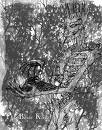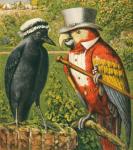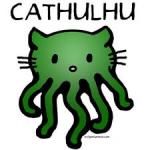 QuickTidal, on 20 October 2022 - 04:11 PM, said:
QuickTidal, on 20 October 2022 - 04:11 PM, said:
 Azath Vitr (D, on 20 October 2022 - 02:49 PM, said:
Azath Vitr (D, on 20 October 2022 - 02:49 PM, said:
To be fair, the concepts about all this come from stuff like a PHILOSOPHY of Quantum Physics book (Tim Maudlin, I think?), and this is all around Bell's theory isn't it?...So the HONEST answer is that no one really knows, everyone is speculating and even the foremost experts can't be 100% certain.....so "falsely" is a bit grandiose. What we know about the universe is infantile in the grand scheme...
And you have to admit the nitpick of "information" doesn't travel faster than the speed of light between those two spinning electrons is exactly that a nitpick, especially with something so esoteric to science circles where they all kind of hand wave it because we can also frame it like: Entanglement doesn't "travel" at all, so how can it travel faster than light? Why are we even asking this question.
It's just Hank's (and others) tiktok's took a VERY complex subject and perhaps oversimplified it (based on what I think is wave function collapse, which I understand some groups of people studying QM reject in favour of what? Super-determinism otherwise known as "The universe is like it is...just because"...?).
Everything is everywhere all at once, and it's all magic anyways.
This is about actual experiments (including the ones for which the most recent Nobel prize was awarded), and actual current or near future technology. (As well as long-term technology---though again worm-holes may be an option.)
Quantum computers rely on entanglement. So does quantum encryption.
'"The experiments [...] show that this stuff isn't just philosophical, it's real—and like other real things, potentially useful", says [...] an eminent quantum researcher at IBM.
[...] From about 1940 until as late as 1990, the topic was often treated as philosophy at best and crackpottery at worst. [...] Today, quantum information science is among the most vibrant and impactful subfields in all of physics. [...] It dictates the design and function of quantum sensors, which are increasingly being used to study everything from earthquakes to dark matter. And it clarifies the often-confusing nature of quantum entanglement, a phenomenon that is pivotal to modern materials science and that lies at the heart of quantum computing.
"What even makes a quantum computer 'quantum'?" [...] "One of the most popular answers is entanglement, and the main reason why we understand entanglement is the grand work participated in by Bell and these Nobel Prize–winners. Without that understanding of entanglement, we probably wouldn't be able to realize quantum computers."'
The Universe Is Not Locally Real, and the Physics Nobel Prize Winners Proved It
This post has been edited by Azath Vitr (D'ivers: 20 October 2022 - 06:03 PM

 Help
Help

























